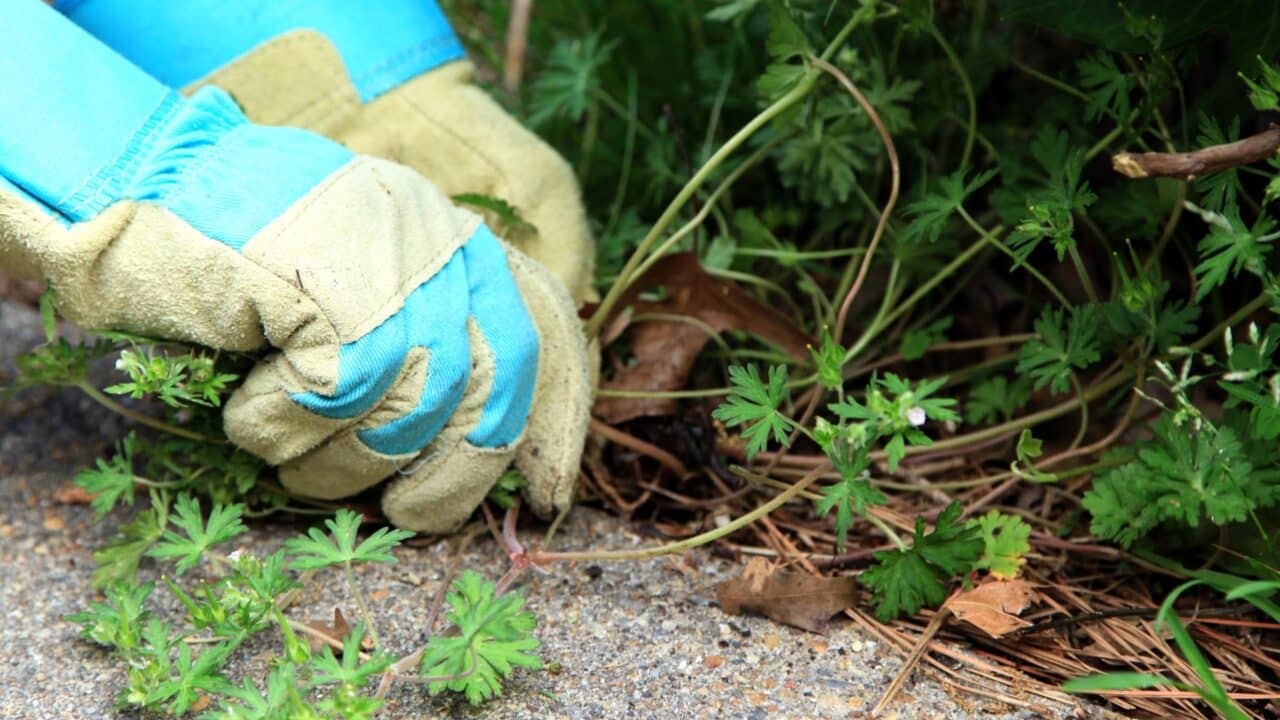Even if your lawn’s struggling in the summer heat, the weeds in your driveway are just getting started.
Crabgrass, spurge, and other aggressive weeds love the tiny cracks in pavement, and once they take root, they can cause real damage to concrete, asphalt, and brick.
At Colin Can Help, we deal with this all the time — and it’s one of the most common calls we get in July and August. That’s why we put together this free guide to help you understand:
-
Why driveway weeds happen
-
Which weeds to watch for
-
And how to get rid of them — and keep them gone
👉 Let’s break it down step-by-step and make your driveway look clean again.
🌱 Why Do Weeds Grow in Driveways?
Driveways may seem tough, but they’re full of tiny flaws — cracks, seams, and gaps — that create perfect weed conditions.
Weeds love:
-
Soil and debris that settle into cracks over time
-
Moisture from rain or watering your lawn that lingers in these crevices
-
Seed delivery by wind, feet, lawn tools, or even pets
Once those seeds land in a moist, slightly dirty crack, they germinate. And with no competition around, weeds grow fast.
Worse, their roots expand and wedge the crack open further, leading to:
-
Concrete and asphalt damage
-
Trip hazards
-
A weedy, unkempt look that brings down curb appeal
🌾 Common Weeds That Grow in Driveways
Knowing what you’re dealing with helps you pick the best control method. Here are the most common culprits we see in Northeast Ohio and similar regions:
| Weed Name | Appearance | Notes |
|---|---|---|
| Crabgrass | Wide, flat blades in a starburst shape | Thrives in heat and compacted soil |
| Spotted Spurge | Low-growing with reddish stems | Often invades cracks in concrete |
| Dandelion | Broad leaves and yellow flowers | Tough taproot, hard to pull by hand |
| Plantain | Flat rosette of oval leaves | Very hardy, regrows fast after cutting |
| Chickweed | Small leaves with white flowers | Prefers shady, moist gaps |
🛒 Want to ID weeds more easily?
A good visual weed ID book like Weeds of the Northeast (Amazon affiliate link) is a great tool to have in your shed.
🧱 What Driveway Weeds Do to Your Property
Beyond the eyesore, these weeds cause structural problems over time:
-
Expand cracks in pavement as roots grow deeper
-
Loosen pavers or gravel by pushing material apart
-
Accelerate erosion when water gets under surfaces
-
Invite ants and pests, which love disturbed materials
🔧 How to Get Rid of Weeds in Your Driveway (And Keep Them Out)
There are two sides to solving this problem:
-
Remove what’s already there
-
Stop it from coming back
We’ll break down the full strategy by method and prevention level.
🧪 1. Use a Targeted Weed Killer (Natural or Chemical)
Prevention Level: Medium to High
If weeds are already growing, you’ll need to kill them before sealing or patching.
✅ Natural Methods
-
Boiling Water – Great for spot-killing. Just pour slowly into cracks.
-
30% Concentrated Vinegar – Much stronger than grocery store vinegar. Kills fast.
-
📌 Recommended Product: 30% Vinegar — what I personally use. They also make a scented version in Orange and Lavendar which both do a pretty good job of masking the strong vinegar smell.
-
-
Salt + Dish Soap – Optional add-on to vinegar to dehydrate weeds faster.
⚠️ Caution: Natural doesn’t mean harmless — vinegar and salt can damage soil, so avoid overspray near your lawn or garden.
💀 Chemical Options (for serious infestations)
-
Post-emergent weed killers – Kill what’s already growing (e.g. RoundUp alternatives)
-
Pre-emergents – Stop seeds from sprouting
-
Total vegetation killers – Prevent regrowth for 6–12 months (great for cracks you don’t want anything growing in)
🧱 2. Seal or Refill Cracks
Prevention Level: High
Once weeds are dead, sealing cracks is the most effective long-term prevention strategy.
✅ How to Do It:
-
Scrape out roots with a screwdriver or weed tool
-
Use a wire brush or pressure washer to clean the crack
-
Let it fully dry
-
Apply a crack filler or joint sealant made for your surface type
🧱 3. Use Polymeric Sand in Paver Driveways
Prevention Level: High
If you have brick or stone pavers, polymeric sand locks joints and prevents weeds and ants.
✅ How it works:
-
Sweep dry polymeric sand into paver joints
-
Wet lightly with a misting hose to activate the binder
-
Once cured, it hardens like grout — locking everything in
🛒 Great choice: DOMINATOR Polymeric Sand
🧵 4. Install Landscape Fabric Under Gravel
Prevention Level: High
Gravel driveways are prone to deep-rooted weeds. A quality landscape barrier stops them at the base.
✅ How to install:
-
Remove top gravel layer
-
Lay down high-strength landscape fabric
-
Reapply and compact gravel on top
🧹 5. Maintain with Weekly Sweeping & Edging
Prevention Level: Medium
Most people ignore driveways in their regular yard routine — but that’s where weeds thrive.
✅ What to do:
-
Blow or sweep away soil and debris weekly
-
Edge around the sides using a string trimmer
-
Don’t let clippings pile up after mowing
🧠 When to Call in a Pro
If your weeds keep coming back, or if you’ve got big cracks, shifting pavers, or drainage problems, it might be time for help.
A pro can:
-
Use commercial herbicides more safely and effectively
-
Apply hot crack filler or tar sealant for serious repairs
-
Redesign edges or install fabric/sand with compacting tools
❓ FAQ: Preventing Weeds in Driveways
What’s the fastest way to kill driveway weeds?
Use boiling water or a total vegetation killer — both work within hours.
Can vinegar kill weeds in concrete cracks?
Yes, especially if you use 30% concentrated vinegar. Grocery vinegar usually isn’t strong enough.
Does sealing a driveway stop weeds?
Yes! Sealing cracks and gaps blocks weed roots and prevents moisture buildup.
Is landscape fabric worth it for gravel driveways?
Absolutely. It blocks weeds and stabilizes your gravel over time.
✅ Ready to Fix Your Driveway?
If you’re local, we can quote a weed and crack control package. If you’re DIYing, check out the recommended tools above and bookmark this guide for spring and fall prep.
💼 Affiliate Disclosure
Some links in this article are affiliate links. If you buy through them, we may earn a small commission at no extra cost to you — and we only recommend tools we personally use or trust.

